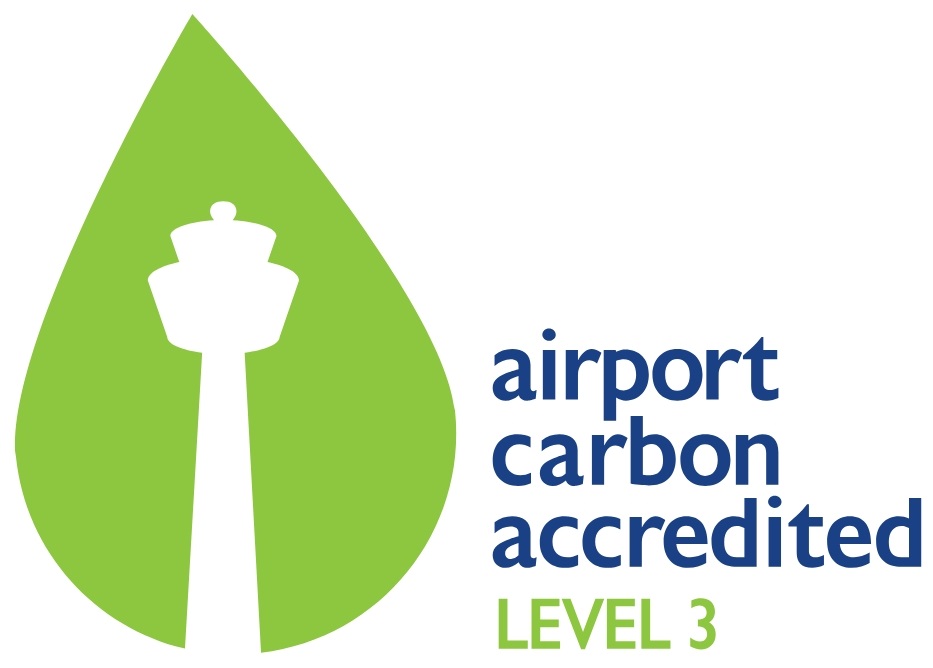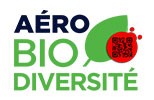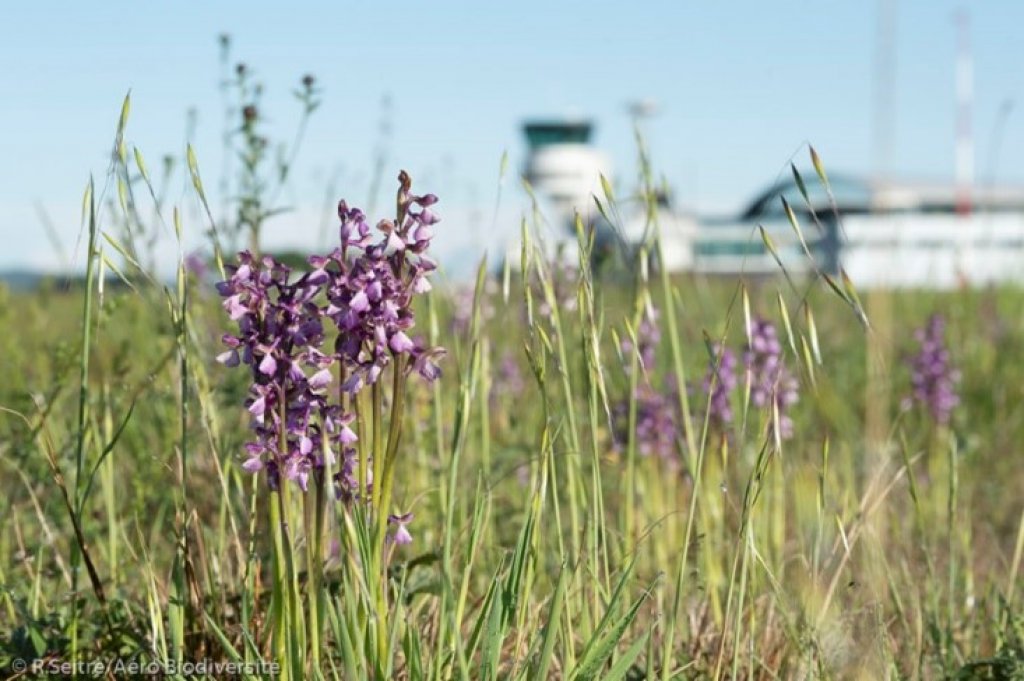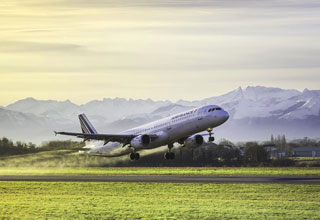Environmental protection

Pau-Pyrenees Airport considers environmental protection to be one of its main concerns.
Ever since the 2000’s and especially from the building of the terminal, protecting the environment and cutting back in energy costs has been crucial. These points are always considered when any project or modification is undertaken at the airport.
As an airport, we are committed to pursuing our efforts in environmental performance by taking actions in these fields :
- Compliance to the environmental regulations when the existing structures are remodeled or when new ones are planned
- Integration of environmental risks assessment in all our processes (handling, operations, assistance, maintenance, servicing, buying, investments, promotion...)
- Promotion of environmental awareness and good practices to the teams and partners
- Effective communication and encouragement of dialogue
As defined by the Grenelle Environment Forum (the French multi-party debate policy on environment and sustainability) and the commitments made by the Union of French Airports (UAF), Pau Airport is committed to establishing a coherent environmental policy by undertaking a set of targeted measures with the objective of reduction and control of nuisances in the following areas :
- Noise management
- Biodiversity
- Water management
- Energy and greenhouse gas emissions
- Waste management
Our participation in the international Airport Carbon Accreditation (ACA) program developed by the ACI marks our long-term commitment to reducing our carbon footprint.
After having successfully obtained the renewal of the level 2 (Reduction of emissions) in 2023 and 2024, the airport has been awarded ACA Level 3 (Optimization) in 2025, which confirms its environmental efforts and the pursuit of decarbonization objectives.
ACA Level 3 Optimization Certificate (2025)

https://www.airportcarbonaccreditation.org/
Flora - Fauna - Biodiversity
Protecting the biodiversity through the responsible management of our natural environment is at the heart of our airport’s policy.
The question consists of preserving ecosystems while preventing animal and particularly bird hazard, in the aim of ensuring aeronautical safety.
Since 2019, Air’Py has welcomed scientific teams from the Aéro Biodiversité association to observe, list and help preserve the animal and plant species of the platform. Their surveys and recommendations allow us to ensure the maintenance of our facilities while respecting the balance of the airport's green spaces, wetlands and meadows.
On the other hand, as the airport area consists mainly of meadows, it remains a protected space, preserved from urban development, that shelters a multitude of insects, amphibians, birds, small mammals and plants, some of which appear on the IUCN Red List of Threatened Species.
Our long-term commitment to the preservation of biodiversity is reflected in the involvement of our staff but also by achieving the second level of the aérobio label. To be awarded the label, our application has been pre-analyzed by the Aéro Biodiversité teams and then presented to the Scientific Council from the National Museum of Natural History (MNHN), to be independently and ethically reviewed.
Annual report on biodiversity at Pau-Pyrénées airport - 2024 (French language)

http://www.aerobiodiversite.org

Orchis bouffon (Anacamptis morio)
Pau-Pyrenees Airport noise pollution

For our local neighbours, noise is the most sensitive nuisance.
The first noise management charter for Pau Pyrenees Airport was signed in 2004.
Since then, the monitoring committee of the Environmental Advisory Commission, which consists of representatives of operators, users and neighbouring communities of the airport, have worked towards a new version of the charter in 2024, focused on improving procedures and adhering to flight instructions.
Noise reduction measures have been formalised in the charter and outlined in annexes. These materialize the commitments of the stakeholders and are the result of meetings based on participation and transparency, under the aegis of the French Directorate General of Civil Aviation.
The renewal of the Charter in 2025 embodies our policy of progress in the environmental matters. It establishes general principles and relies on the monitoring committee to sustain developments, manage the action plan, and guide progress within a permanent framework.
Download our commitments here (French version):
Energies and emissions

Air contamination is a major public health concern. Greenhouse gases and polluting emissions need to be reduced to preserve air quality.
As energy efficiency is key to air quality, Air’Py has decided to adopt a proactive approach by including the evaluation and reduction of greenhouse gas emissions in its long-term objectives.
CARBON MANAGEMENT PLAN - OBJECTIVES AND ACHIEVEMENTS
- Gradual replacement of ground service equipment with reduced environmental impact models (electric motors replacing thermal engines)
- Supply of electricity to aircraft to prevent the use of auxiliary power units (APUs) and thermal ground power units (GPUs)
- Limitation of the use and recourse to air conditioning, heating and generators that are sources of polluting emissions
- Replacement of the cooling tower and air conditioning units with efficient and modulation equipment
- Relamping of buildings and markings and lighting control
- Carbon assessment and integration of sustainable development guidelines in our practices and activities
- Raising awareness among staff and stakeholders about good practices
Nouvelle-Aquitaine Air Quality Observatory (French version only)
Flora - Fauna - Biodiversity
Protecting the biodiversity through the responsible management of our natural environment is at the heart of our airport’s policy.
The question consists of preserving ecosystems while preventing animal and particularly bird hazard, in the aim of ensuring aeronautical safety.
Since 2019, Air’Py has welcomed scientific teams from the Aéro Biodiversité association to observe, list and help preserve the animal and plant species of the platform. Their surveys and recommendations allow us to ensure the maintenance of our facilities while respecting the balance of the airport's green spaces, wetlands and meadows.
On the other hand, as the airport area consists mainly of meadows, it remains a protected space, preserved from urban development, that shelters a multitude of insects, amphibians, birds, small mammals and plants, some of which appear on the IUCN Red List of Threatened Species.
Our long-term commitment to the preservation of biodiversity is reflected in the involvement of our staff but also by achieving the second level of the aérobio label. To be awarded the label, our application has been pre-analyzed by the Aéro Biodiversité teams and then presented to the Scientific Council from the National Museum of Natural History (MNHN), to be independently and ethically reviewed.
Annual report on biodiversity at Pau-Pyrénées airport - 2024 (French language)

http://www.aerobiodiversite.org

Orchis bouffon (Anacamptis morio)
Waste

The airport encourages sorting to reduce the amount of waste it produces. Raw materials wasted, increasing waste management costs, insufficient waste treatment capacity... it is high time to reduce waste production.
Several relevant measures have been taken in recent years.
Objectives
- Raise awareness amongst airport employees and users about sorting by creating a practical information guide to educate people and encourage them to dispose of waste properly
- Organise collection for bulky waste
- Control unauthorised dumping
- Include clauses on cleanliness and environmental friendliness in construction/renovation specifications and contracts
- Limit the production of hazardous and non-hazardous industrial waste at the source
- Provide a continuous stream of information about waste production in the airport with the aim of reducing waste








